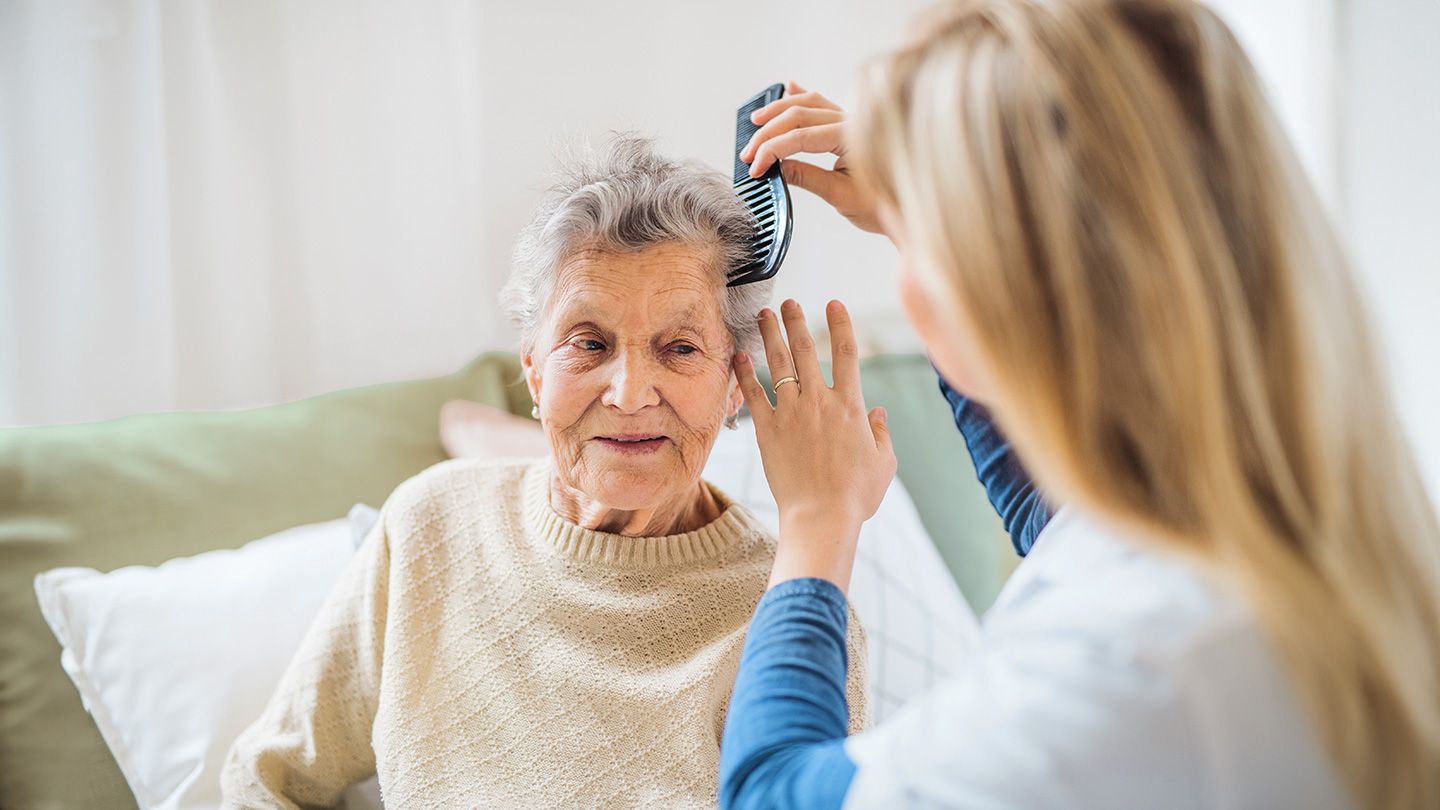Understanding the Aging Process - At What Age Do We Start to Decline?
Aging is an inevitable part of life that starts impacting us well before those later years. But at what age do our physical capabilities and mental faculties actually start to decline?
When Does Aging Begin?
While aging is a gradual process, most experts agree that it starts earlier than many people realize. Somewhere around age 30 is when subtle changes and loss of function begins.
This varies slightly based on genetics, lifestyle factors, and gender. But our bodies definitely don't wait until old age to show aging effects.
Declining Muscle Mass and Strength
One major age-related change is losing muscle mass, a process called sarcopenia. According to studies, we start losing up to 3-5% of muscle every decade past 30 years old if we do not strength train to counteract it.
That muscle loss leads to feeling weaker, struggling more with lifting heavy objects, and getting tired more easily. Coordination and balance also start to suffer without maintaining muscles supporting proper mobility.
Decreased Bone Density
Bone mineral density peaks around age 30 and then progressively declines with age. Post-menopausal women in particular are at greater risk for developing osteoporosis from accelerated bone loss.
Starting in middle age, bone loss also makes us more prone to breaks and fractures if we take a hard fall. So those fragile bones are an obvious aging sign.
Changes in Body Composition
Body fat distribution and metabolism shift as we age, even if weight on the scale stays fairly stable. We tend to gradually gain belly fat as the years go by while losing muscle tone.
That increasingly sedentary lifestyle and slowing metabolism also makes it easier to pack on unwanted pounds. Keeping fit gets harder past 30 despite eating the same diet.
When Does Our Brain Start to Age?
Just as physical aging starts subtly impacted the body around 30 years old, cognitive changes related to aging also begin in early middle age. Reaction time slows, memory worsens, and thinking becomes less sharp.
Processing Speed and Reaction Time
Processing information and reacting quickly both start declining around age 30 at a rate of 1-2% annually. Simple reaction time can slow by up to 20% between ages 20 and 60 according to some estimates.
While the difference may seem minor year to year, it definitely adds up. Things like responding promptly to stop signs, accidents, or anything requiring fast reflexes gets harder.
Memory Decline
Mild memory lapses and difficulty quickly summoning words, names, and facts are very common around 30 years old also. These senior moments pick up in frequency over the next few decades.
Memory capacity itself does decrease with age. However keeping mentally active, social, and engaged in middle age seems to help offset more dramatic loss later on according to studies.
Information Processing and Focus
Multitasking and concentrated focus both suffer thanks to natural brain aging. Around age 30, it becomes harder to tune out distractions, think deeply on a single topic, learn complicated skills quickly or manage multiple complex responsibilities without getting overwhelmed.
Information processing also slows down some so absorbing or reacting to rapid inputs gets more challenging. This contributes to feelings of mental fatigue as well over years.
Lifestyle Factors Impacting Aging Rate
While genetics do play a role, getting adequate nutrition for your body, keeping brains active and minimizing disease risk through positive health habits can promote longevity and slow functional decline.
Poor Diet
Consuming excessive sugar, refined carbs and processed foods wreaks havoc on everything from energy levels to skin elasticity. Conversely whole, nutrient-dense anti-aging diets enhances well-being.
Oxidative stress and chronic inflammation also accelerates aging. Antioxidants from fruits, vegetables and healthy fats counteract while fiber, protein and probiotics reduce inflammation
Lack of Exercise
Inactivity is strongly linked to nearly every chronic disease along with faster aging. But consistent movement found even just 30-60 minutes of daily walks helped reverse aspects like thinning bones and slowing reaction times.
Weight training especially prevents that steady muscle loss. And improving cardiovascular health keeps lungs, heart and circulation young.
Chronic Stress
High cortisol and other stress hormones over long periods disturb every system in the body. It exacerbates mental decline, muscle loss, and many diseases while aging your looks.
Relaxation practices like yoga, active coping strategies and mindfulness habits serve as anti-aging buffers against the ravages of stress.
Poor Sleep Habits
Chronic sleep deprivation stresses the body immensely. Long term it contributes to obesity, diabetes, heart problems and stroke - all of which accelerate aging!
Getting your circadian rhythms aligned by keeping consistent bedtimes/wake times seems critical too. Both quality and adequate quantity of sleep (7-8 hours) matters.
Social Isolation
Lack of close personal relationships and mental stimulation takes a big toll over decades. Ongoing social connections and purposeful community activity seems crucial for reducing cognitive decline and depression.
Social engagement also leads to increased physical activity - especially walking - for better fitness. Group activities provide accountability too.
Changes We Can Expect with Age
While we start slowly declining physically and mentally in middle age, the most dramatic aging effects happen in our late 60s and beyond. Heres a quick breakdown...
For Women
Menopause, occurring between ages 45-55 on average, marks a turning point for female aging. Hormonal fluctuations negatively impact energy, body composition, skin elasticity, mood, and brian function. Bone loss also accelerates post-menopause.
By age 75, chronic conditions like heart disease and arthritis are common along with vision problems. Mobility loss from weakened muscles, poor balance and decline in reflexes also increase fall risks.
For Men
Unlike the clear hormonal shift of menopause, male aging progresses subtly over decades. Loss of strength, stamina, hearing, memory and focus creep up gradually.
Lower testosterone post age 50 contributes to erectile dysfunction, body fat gain, depression and bone density dropping as well. Alzheimers and heart disease rise sharply past age 75 too.
Prostate cancer risk also nearly doubles every decade starting at age 50. Screenings catches this slow growing cancer early.
Life Expectancy Reality Check
Despite medical advances allowing 85+ year life spans, living well past 80 is still not super common. US life expectancy sits around 79 while world life expectancy is closer to 72 years.
Genetics matters some. But more importantly, lifestyle plays a pivotal role in functional longevity free from chronic disease and disability into old age..
Starting healthy habits early and staying disciplined for decades does seem to pay off. Figuring out what works best individually aids us to fight back against much of agings negative effects.
While we cant eliminate maturing, proactively counterbalancing decline wherever possible allows us to stay vibrant in both body and mind for as long as possible!
Disclaimer: This article is for informational purposes only and does not constitute medical advice. Always consult with a healthcare professional before starting any new treatment regimen.
Related Coverage
Find the right Rhode Island Medicare plan with our simple guide. Compare Original Medicare and Medicare Advantage options....
Get clear guidance on Medicare California options, from Original Medicare to Advantage and Medigap plans tailored to your needs....
Find the best Maryland Medicare plans for your needs. Compare options like Medicare Advantage, Medigap, and Part D to choose wisely....
Confused about medical specialties? This guide clarifies the different types of doctors, their roles, and when to seek their expertise for better health decisions....
Know your Medicare guaranteed rights to secure coverage without discrimination. Get the protection you deserve when it matters most....
Find the best Montana Medicare options for your needs. Compare plans, save money, and get the coverage you deserve in Big Sky Country....
Check 2025 Medicare Medicaid income limits and see if you qualify for dual eligibility. Find programs like QMB, SLMB, and more....
Compare Medicare Plan G vs N to get lower premiums, fewer copays, and protection from excess charges, you can pick the best fit....
Elderly heat sensitivity increases risks during hot weather. Know when fans help or harm and how to keep seniors cool and safe....
Hospice care falls short in areas of psychological support, communication, caregiver assistance, and symptom management. Learn what hospice doesn't discuss....









